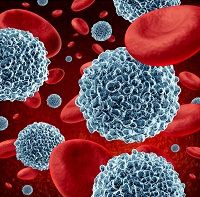Article
Experimental HIV Drug Could Replace Daily Medication
Author(s):
Current treatment for the human immunodeficiency virus (HIV) typically requires daily medication, but a novel regimen may be able to deliver the same benefits with just once- or twice-a-year dosing.

Current treatment for the human immunodeficiency virus (HIV) typically requires daily medication, but a novel regimen may be able to deliver the same benefits with just once- or twice-a-year dosing.
A new drug discovered by Harris A. Gelbard, MD, PhD, from the University of Rochester School of Medicine and Dentistry (UR) combined with a new delivery system created by Howard E. Gendelman, MD, from University of Nebraska Medical Center, may be able to significantly cut therapy frequency. The new drug and delivery system were tested together in human immune cells as well as in mice engineered to have human immune systems.
“Our ultimate hope is that we’re able to create a therapy that could be given much less frequently than the daily therapy that is required today,” Gelbard, director of UR’s Center for Neural Development and Disease, said in a news release.
Ritonavir-boosted atazanavir (nanoATV/r) nanoformulations coupled with the new drug, URMC-099, can reduce viral load and number of HIV infected CD4+ T-cells, according to the study in Nanomedicine Nanotechnology, Biology, and Medicine.
The delivery system, described as a “nanoformulated” protease inhibitor, works by taking a drug and turning it into a crystal — like what an ice cube does to water. Then the crystal drug is wrapped in a fat and protein coat, which protects the drug from being degraded and removed by the liver and kidney. The system was tested with URMC-099. It appears that the nanoformulation helps the protease inhibitor stay in white blood cells longer, and therefore, prolongs the treatment effect. The researchers noted that the strategy produced better results than either drug by itself.
“The chemical marriage between URMC-099 and antiretroviral drug nanoformulations could increase drug longevity, improve patient compliance, and reduce general toxicities,” explained Gendelman, professor and chair of the Department of Pharmacology and Experimental Neuroscience at the University of Nebraska.
While it’s too soon to report if the treatment will move to clinical trials, the researchers expect that it won’t be long before it does. A drug that only has to be taken every six months could help patients manage the disease because there won’t be the added challenge of remembering to take it every day. There would also be less frequent side effects and make the condition overall a little easier.
“We are excited about pursing this research for the treatment and eradication of HIV,” Gendelman concluded.





